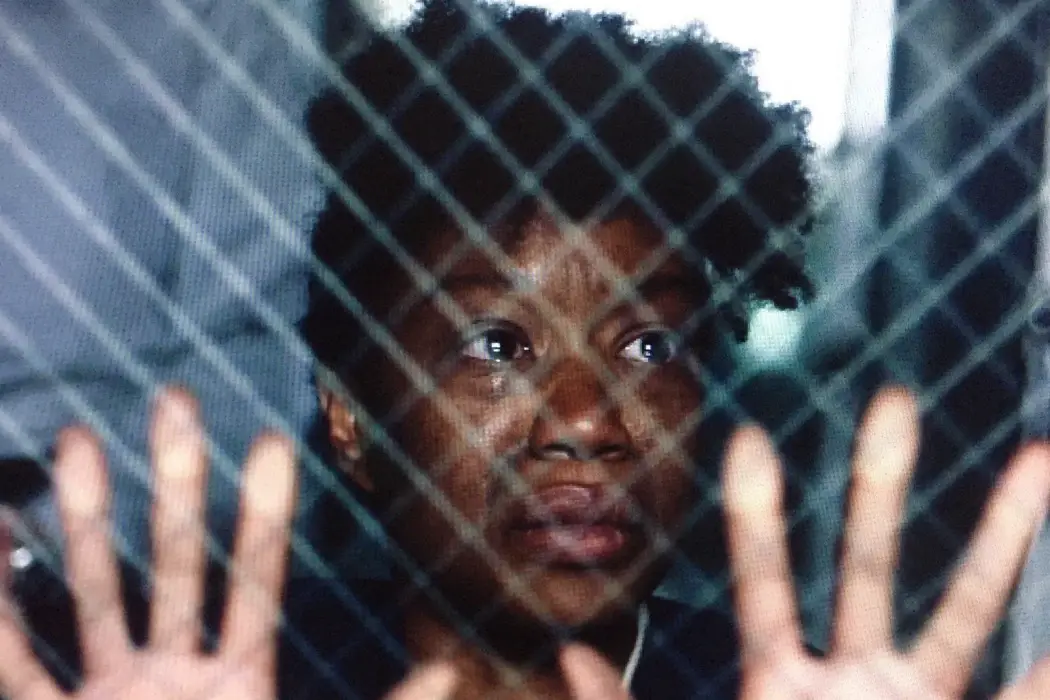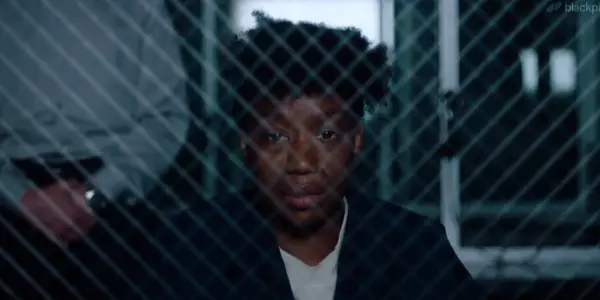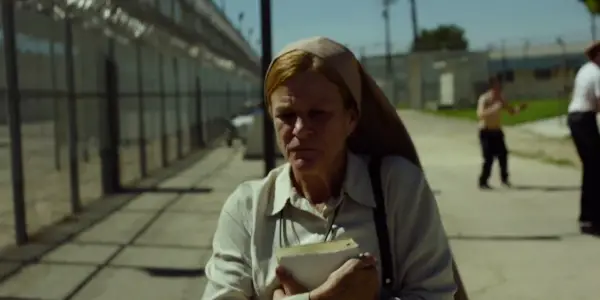Tribeca Review: DEAD WOMEN WALKING: A Solemn Walk To An Impactful Film

Stephanie Archer is 39 year old film fanatic living in…
Since the forging of metal, shackles and prison doors have been fashioned to keep those we wish to enslave or punish confined. The need to oppress and seclude, whether the individual “deserved it” or not has been an innate drive amongst humans. Medieval, western, slavery, gladiators and criminals have all felt the cold metal locked onto their wrists, waists and ankles – escape impossible and freedom a long forgotten dream. Now imagine all of this compounded with the approaching minute of your determined death. Welcome to death row.
Dead Women Walking from director/writer Hagar Ben-Asher takes viewers through the steps one goes through twenty-four hours before execution, each step of the process presented like a short film – a new woman with each section, one step closer to the end, only minutes from the others shown before and after her – even breaking from the formula to bring in individuals who will forever be affected by those about to be executed.
Dead Women Walking is the perfect example of the true power of film to change convictions and beliefs. Walking out of the theater, I found myself examining my own beliefs and feelings on the death penalty as well as our justice system as a whole – a solemn questioning I still carry with me. And I know I was not the only one affected by the film. The crying in the theater did not go unnoticed. What started off as a few sniffles – myself included – only got louder and deeper as each story revealed new heartache, loss of humanity, and the depth of cruelty.
This film is unafraid to force the audience to witness every aspect Dead Women Walking is trying to convey. We are the witnesses arriving to the execution, forced to look at the injustice and ignorance we allow and witness the consequences of our own actions. We become witnesses of a justice system that punishes the poor and ignores the mentally ill with an unrelenting grasp. These are the Dead Women Walking.
Dead Women Walking: A Solemn Walk to an Impactful Film
Last appeal, last drive, last visit, last meal, last shower, each of these a final moment and a step closer to the final breath – a process each inmate on death row undergoes during their last 24 hours. In these last moments, with each step, Dead Women Walking humanizes the individuals shunned from society and branded murders. With each woman, however, you see beyond the criminal to the person behind the crime, meeting them before you are given the knowledge of why they are there.
With each step, each woman and each story, Dead Women Walking opens up a conversation and gives a hard look at those we have sentenced to die. A woman who murdered while under the influence, another the men that molested her, another woman who is clearly mentally ill, and yet still another repeatedly drugged and raped. These are women of circumstance, many times underprivileged and uneducated – left behind by family and society.

There was so much that this film did right. I have to admit, as Dead Women Walking progressed and we reached the end of the second inmate’s story, I found myself searching for scrap paper to take notes. The names of the woman, the stage they were at, their crime – there was no way I would be able to remember everything. But I wanted to.
The idea to present the film in what is seemingly a collection of short films was brilliant – and I don’t believe it would have worked any other way. Where you could have followed one individual from start to finish, Dead Women Walking was made more impactful having a variety of different women, from different backgrounds, cultures and crimes. Yet, even with all its diversity and individual stories, Dead Women Walking is a cohesive assembly where the faces may change but the story is the same, the feelings you develop throughout the film carrying over from one story to another, the women all becoming one.
Dead Women Walking was not just about the inmates, though a primary focus, but was also about those around the inmates – guards, family, religious figures. It shows how the actions and consequences of one individual, no matter how bad, ripples out to those around them – forever changing them – whether they become more callous, finding fault in their own beliefs or being there for their daughter in their final moments.
Casting is also a reason the film had such a resonating impact. There were so many standout stars it is hard to name any for fear of forgetting one. Dale Dickey (best known for Winter’s Bone) gave a memorable performance as Sister Rebecca struggling with her beliefs as she counsels young inmate Ruth, played by Bess Rous – another heartbreaking performance. Inmates played by June Carryl, Maya Lynne Robinson, Joy Nash, Jeryl Prescott, Dot-Marie Jones, Lynn Collins and Maya Eshet deliver outstanding performances, driving home the message of the film without question and finding individuality while blending with their counterparts – no one overshadows anyone in this film. There is a cohesive blend of talent and everyone delivers.
A System in Question
My fiancée and I debate this topic of prison frequently – both of us, many times, on different sides of each element of this argument. Dead Women Walking is proof that many times, you have to see the argument to fully understand the issues. Where many times I have a very “old school” way of looking at crime and punishment, my fiancée sees the mental health, the lack of education, poverty and ignorance. This film was a visual representation of many of the areas he talks about – and I am starting to lean towards his side of the argument.

Unfortunately, seeing is believing. Seeing each process of what these women go through before execution is heartbreaking, especially as you are given a moment to get to know them – many not ruthless killers but instead products of an unfair system. One woman, Wendy (Joy Nash), has begun her final walk for the murder of her father and his son who had molested her. She is abandoned by her mother, her community and the system. You feel for this woman fearful of her death and grieving the absence of her remaining family long before you know what was done to her.
Is it right that we just throw people in jail, executing those who have seemingly murdered in cold blood, believing they have shown the true nature of their soul and the absence of their heart? My fiancée talks a lot about rehabilitation and treatment, and while watching this film it seems clear director/writer Hagar Ben-Asher may feel the same. Many of these women had no idea what they were doing when they committed their crimes – should their punishment be death? Or should we instead learn where society has failed them in order to help others and strive to treat and rehabilitate them?
Conclusion
Dead Women Walking was a favorite of mine from this year’s Tribeca Film Festival, and a film I will not be forgetting any time soon. It opens an opportunity for conversation and examination while humanizing those individuals that society has locked away without a further care or thought of. It is a film that opens the mind through sight, giving you a chance to see the person behind the monster.
Have you seen Dead Women Walking? What are your thoughts?
Does content like this matter to you?
Become a Member and support film journalism. Unlock access to all of Film Inquiry`s great articles. Join a community of like-minded readers who are passionate about cinema - get access to our private members Network, give back to independent filmmakers, and more.












